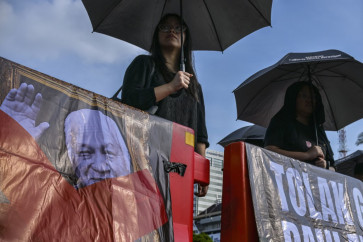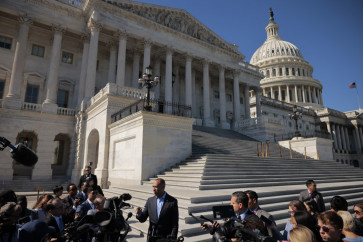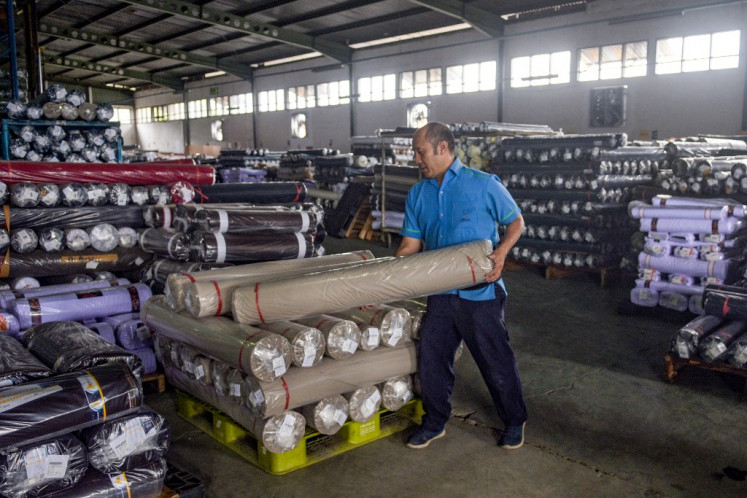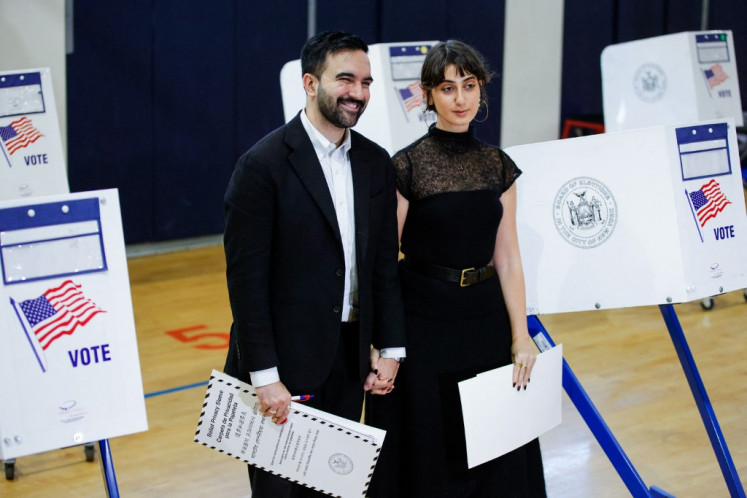Popular Reads
Top Results
Can't find what you're looking for?
View all search resultsPopular Reads
Top Results
Can't find what you're looking for?
View all search resultsPapuan people reject Hizbut Tahrir: Expert
Change text size
Gift Premium Articles
to Anyone
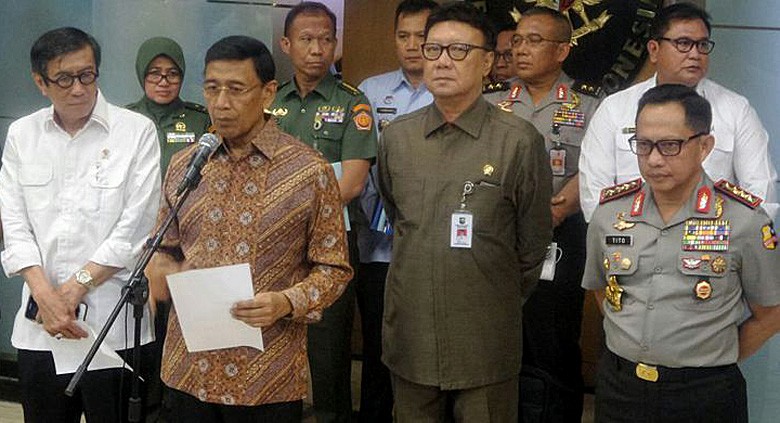 Opposing radicalism: At a press conference on May 8, Coordinating Political, Legal and Security Affairs Minister Wiranto (center), accompanied by Home Affairs Minister Tjahjo Kumolo, announces the government's decision to start a legal process to ban hard-line Islamic organization Hizbut Tahrir Indonesia (HTI). (Kompas.com/File)
Opposing radicalism: At a press conference on May 8, Coordinating Political, Legal and Security Affairs Minister Wiranto (center), accompanied by Home Affairs Minister Tjahjo Kumolo, announces the government's decision to start a legal process to ban hard-line Islamic organization Hizbut Tahrir Indonesia (HTI). (Kompas.com/File)
F
urtive attempts by hard-line group Hizbut Tahrir Indonesia (HTI ) to campaign for the establishment of a caliphate are being met with rejection from all societal elements in Papua, as Papuans consider them to contradict the state ideology of Pancasila and the 1945 Constitution, an expert has said.
“I can say HTI has committed an attack against the government by waging a war of ideas. It teaches its cadres to fight against the state. They camouflage their fight against the state with various activities. They create a clash of opposing ideals and ideologies,” political analyst Ridwan Al-Makassary said as quoted by Antara on Thursday.
Established in Jerusalem by Taqiyuddin An-Nabhani in 1953, Hizbuth Tahrir aimed to build a caliphate and was opposed to democracy, Ridwan said.
“Hizbuth Tahrir has attempted to expand its influence in several countries, such as Egypt, Malaysia, Pakistan, Tajikistan, Turkey and several other Islamic countries, but it has received massive rejection and has been banned as it is considered dangerous to those countries,” he said.
HTI entered Indonesia in 1980s, targeting university students and mosque congregation members. It spread to Papua in the 2000s following the fall of the Soeharto regime, which was known for its tough measures against Islamic organizations.
Papua Police chief Insp. Gen. Boy R.Amar said although HTI had an ideology that was against Pancasila and the Unitary State of the Republic of Indonesia, it was important for the government to find elegant ways to disband the organization.
“We cannot use violent ways, because we have a law that regulates procedures required in the disbandment of a mass organization,” he said. (rdi/ebf)


